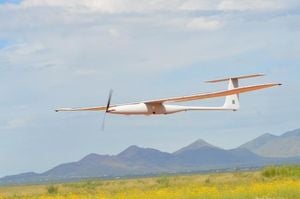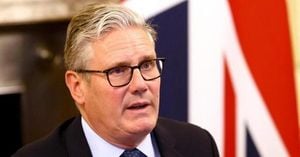Good morning from Hong Kong. Tesla has long been the catalyst for the global electric vehicle (EV) movement, with Steve Levine from The Information stating, "Tesla created the EV industry in 2008 with the release of the Roadster." Since then, its innovative approach has sent other automakers scrambling to keep pace and even inspired China to carve out its own EV market. Yet, according to Levine, Tesla’s reign might be waning after Elon Musk decided not to move forward with the much-anticipated $25,000 electric vehicle aimed at mainstream consumers. Instead, Musk has shifted his focus to developing autonomous Robotaxis, signaling Tesla's transformation from just another car manufacturer to more of an artificial intelligence powerhouse.
Levine expressed concern over Musk's new direction, asserting it might inadvertently pull the brakes on the burgeoning EV industry. He highlighted instances since February where major car manufacturers have retrenched plans for multibillion-dollar investments, citing ex-Tesla executive Gene Berdichevsky's warning: Musk's pivot will likely delay the adoption of EVs by five years due to the pressure Tesla exerts on the entire market.
But it appears Chinese EV manufacturers are not stepping back. Just after reading Levine's observations, I stumbled upon another newsletter by Michael Dunne, another industry analyst. The headline read, "China is Done with Global Carmakers." Dunne has consistently argued the dominance of foreign giants like GM and Ford within China's automotive sector is quickly fading, as these brands face crumbling sales and increasing financial losses. Even the Jeep operations under Stellantis have suffered serious setbacks, leading to bankruptcy.
What’s fueling this dramatic turn of events? Dunne suggests it’s China’s aggressive pivot to electric vehicles, where the share of EV sales is slated to soar to nearly 50% this year, jumping from just 6% back in 2020. "China has sprinted from 1 million to more than 10 million annual EV deliveries within four short years," he explained. This rapid evolution blindsided global automakers who were slow to adapt, content with their gas-powered models. Meanwhile, Chinese manufacturers capitalized on this shift.
Interestingly, Tesla was pivotal to kicking off China's EV market boom. Back in 2018, it became the first foreign automaker permitted to establish its factory there without needing to partner with local firms—a huge advantage. The Shanghai gigafactory opened the door for additional concessions, including tax breaks and expedited approvals from government entities. This strategy was part of China’s so-called "catfish effect," intended to encourage local EV producers to amp up their game by placing such a formidable competitor right next to them.
Elon Musk remains influential within China for now. During his recent visit to Beijing, he was granted access to prominent party officials, including Li Qiang, the country’s second-ranking leader. Following this meeting, there were signs of renewed support for Tesla, with potential removal of restrictions barring its vehicles from entering military areas and promises to allow Chinese customers access to Tesla’s advanced self-driving software. Such perks are likely to push local rivals to accelerate their efforts.
Despite this, Tesla’s once unassailable position is facing tough competition from Chinese firms like BYD, buoyed by significant government subsidies. BYD overtook Tesla as the top global seller of electric vehicles just last quarter, and projections show the trend continuing with BYD set to leave Tesla behind, at least for the year 2024. This shift highlights how quickly the EV market can change, with new players emerging capable of challenging long-established giants.
Then, there’s the question of consumer perception. A recent survey of Morgan Stanley interns shed some light on this, indicating it may not just be about the cars themselves. Many young respondents expressed declining interest in Tesla, citing the company's failure to refresh its vehicle models and the controversial comments made by Musk himself. The perceived "cool factor" of Tesla dropped from 30% just three years ago to only 11% now. Meanwhile, brands like Mercedes and BMW are capturing the interest of this younger audience more effectively.
Commenting on this trend, Ivan Drury from Edmunds pointed out, "This decline may not revolve around the car features themselves but rather the personality associated with it." Many Gen Z individuals have disapproved of Musk's controversial statements surrounding various sensitive topics, from gender identity to international politics, noting the backlash against him and his brand.
While Tesla's goal of pivoting toward providing autonomous taxis, or Robotaxis, seems promising, it's clear from the survey data young consumers aren’t yet on board with the concept. Many participants remained skeptical of sharing their cars with strangers, casting doubt on whether owners would be open to turning their vehicles over to complete strangers for rides. Khosrowshahi, Uber's CEO, also shared concerns about the practicalities and logistics of Musk's plans, expressing doubts about whether Tesla's ventures could truly meet customer demands, especially during peak times, when ride requests typically surge.
He noted, "The times at which you're going to want your Tesla are probably going to coincide with the peak demand periods." He underscored how Uber's business model allows for quick adjustments, ramping up their number of drivers seamlessly during busy times and planning routes based on live data. This contrasts with Tesla’s model, which depends heavily on the willingness of private owners to share their vehicles.
For Khosrowshahi, Tesla's ambitious shift seems to be underestimations on Musk's part. Building software and hardware for autonomous driving is fundamentally different than handling the daily nuances of ride-hailing and customer service, such as resolving potential rider issues. The challenges of daily management of tens of thousands of rides juxtaposed with the technologically arduous task of constructing autonomous vehicles paints two starkly different pictures of business operations.
Yet Khosrowshahi is not entirely dismissive of Tesla. His approach offered optimism around potential partnerships, likening potential collaborations to how fast-food chains team up with delivery platforms, leveraging each other's strengths for greater market efficiency.
Could this collaboration become the lifeline Tesla desperately needs as it navigates this shifting battleground? There are many uncertainties, but how Musk and his team adapt to market changes and evolving consumer perceptions will determine the future of Tesla within the expansive EV space. It's not merely about being the first anymore. Now, it's about staying genuinely relevant to consumers who aren’t easily won over. Only time will tell if Musk’s vision will resonate or if competitors, both established and emerging, will continue to dictate the pace of change.



